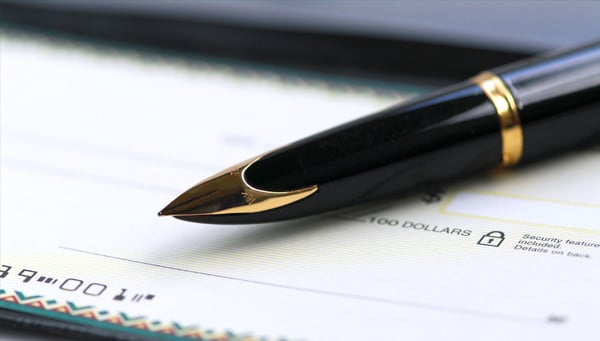Account Details
Our Jack Accounts are designed for children under 18. These checking and savings accounts help your student learn responsible money management. Open a Jack Account today with a $20 deposit.
- No monthly service charge
- Minimum opening deposit of $20
- No transaction fees
- EMV Debit Card
Jack Accounts require a monthly deposit from a parent account.
Ages and Stages of Money Management: A To-Do list
To successfully reach your financial goals, a lot depends on what you do and when. Here are just a few ideas young adults can consider at key stages of their life.
When You’re in High School
Consider earning money outside of your home, whether it’s babysitting, lawn mowing, or working in a movie theater or another “real” business. A job can provide a sense of accomplishment and responsibility. It also can be a good opportunity to learn about careers and to “network” with professionals.
Learn the concept of “paying yourself first”–that is, automatically putting some money into savings or investments before you’re tempted to spend it. Start small if you have to and gradually build up.
Consider opening a bank account, either on your own or with a parent or other adult. It’s a good way to learn about managing money. You also may want to start using a debit card – you can use it to make purchases but you won’t pay interest or get into debt because the money is automatically deducted from your account.
Take a personal finance class or join an investment club at school.
If you’re planning to go to college, learn about your options for saving or borrowing money for what will be a major expense.
If you (and your parents) are comfortable with getting a credit card, you should know that there are cards designed just for teens. One is a credit card with a low credit limit that can keep you from getting deeply in debt. Another is a pre-paid card that comes with parental controls, including spending limits.
When You’re in College
Realize that as you pay bills and debts on your own you are building a “credit record” that could be important when you apply for a loan or a job in the future. Pay your bills on time…and borrow only what you can repay.
If you decide to get your own credit card, choose carefully. Take your time, understand the risks as well as the rewards and do some comparison shopping. Don’t apply for a credit card just because you received an invitation in the mail or a salesperson was offering a free gift on campus.
Protect your Social Security number (SSN), credit card numbers and other personal information from thieves who use someone else’s identity to commit fraud. Examples: Use your SSN as identification only if absolutely necessary and never provide it to a stranger. Safeguard your personal information when using the Internet or borrowing a computer provided by your school.
Consider a paying job or even an unpaid internship at a workplace related to a career you’re considering.
If possible, set aside money into savings and investments. Try to take a class in personal finance. Read money-related magazines and newspaper articles.
When You’re Starting a Career
Keep your credit card and other debts manageable. Maintain a good credit record.
Save money for both short-term and long-term goals. Contribute as much as you can to retirement savings, which often can be used for other purposes, including a first-time home purchase. Take advantage of matching contributions that your employer will put into your retirement savings.
Do your best to stick to a budget and control your spending, especially if you’re still paying back student loans or working at an entry-level job.
Although insurance sometimes seems like a waste of money, you only need one accident or catastrophe to wipe you out financially. Think about disability insurance (to replace lost income if you become seriously ill) and health insurance (to cover big medical bills). Check into low-cost or free insurance offered through your employer.
When You’re Starting a Family
Continue saving and investing money, including in retirement accounts.
If you don’t already own your home do some research to see if this is a good option for you. A home purchase can be expensive but it also can be an excellent investment and a source of tax breaks. Check out educational resources for first-time homebuyers.
Make sure you are properly insured, including life, health, disability and home owner’s or renter’s insurance.
Talk with an attorney about the legal documents you should have to protect your loved ones if you become seriously ill or die. These documents typically include a will, a “durable power of attorney” (giving one or more people the authority to handle personal matters if you become mentally or physically incompetent) and a “living will” (specifying the medical care you want or don’t want if you become hopelessly ill and cannot communicate your wishes.)
Courtesy FDIC Consumer News, find current and past issues of FDIC Consumer News at www.fdic.gov/consumers/consumer/news.
Enjoy A Variety of Benefits

EMV Debit Cards
Our EMV Debit Cards are a secure and convenient payment method for everyday transactions.

School Spirit Cards
Get a customized debit card* and show off your school spirit! The more you use your card, the more we will donate to your school.

SecurLOCK
Protect your debit card from fraud, control where your card is used and receive spending notifications.







